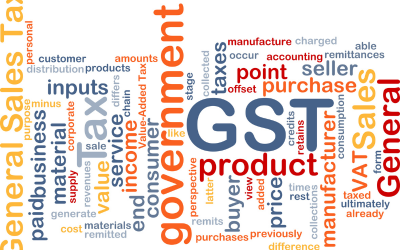Highlights:- QuickBooks Basics: Learn the fundamentals of QuickBooks, including its user interface, setup process, and how to navigate through the software. - Financial Management: Understand how to m...
Highlights:
- QuickBooks Basics: Learn the fundamentals of QuickBooks, including its user interface, setup process, and how to navigate through the software. - Financial Management: Understand how to manage financial transactions, includinginvoicing, payments, and reconciliation in QuickBooks. - Inventory Management: Learn how to set up and manage inventory, track stock levels, and process inventory transactions in QuickBooks. - Payroll Processing: Master QuickBooks payroll features, including calculating salaries, tax deductions, and processing employee payments. - Financial Reporting: Gain the skills to generate a variety of financial reports, suchas
Profit & Loss, Balance Sheet, and Cash Flow statements.
- QuickBooks Advanced Features: Explore advanced functionalities such as job costing, budgeting, and customizing QuickBooks for business-specific needs.
Course Objectives:
By the end of this course, you will be able to: - Understand QuickBooks' interface and core features. - Set up QuickBooks for various business types and industries. - Manage accounts, transactions, and financial data efficiently. - Track inventory and manage stock levels in QuickBooks. - Process payroll and tax deductions for employees. - Generate and analyze key financial reports to support business decisions. - Implement advanced QuickBooks features for customized
Course Structure:
1. Introduction to QuickBooks Accounting
- Overview of QuickBooks and its features. - QuickBooks interface and navigation: How to get started. - Setting up a company in QuickBooks and configuring business settings. - Understanding chart of accounts and categorizing transactions. - Managing and maintaining QuickBooks
2. Managing Financial Transactions
- Recording sales transactions and issuing invoices. - Managing customer payments and applying payments to invoices. - Recording purchase transactions and managing accounts payable. - Creating bills, making payments, and tracking outstanding balances. - Managing credit card transactions and bank accounts.
3. Inventory Management in QuickBooks
- Setting up inventory items and tracking stock levels. - Managing inventory-related transactions, including purchases and sales. - Generating inventory reports and managing stock reordering. - Using inventory costing methods: FIFO, LIFO, and average cost. - Running stock adjustment and inventory reconciliation reports.
4. Payroll Processing in QuickBooks - Setting up employee records and payroll items. - Processing payroll: Calculating wages, taxes, and deductions. - Managing employee benefits, such as bonuses, commissions, and deductions. - Filing and paying payroll taxes through QuickBooks. - Generating payroll reports and filing tax forms.
5. Generating Financial Reports
- Creating and customizing financial reports: Profit & Loss, Balance Sheet, CashFlow. - Using QuickBooks for financial analysis: Comparing income and expenses, reviewingtrends. - Customizing reports for specific business needs. - Exporting reports to Excel and PDF formats for sharing. - Using QuickBooks reporting tools to make informed
6. Bank Reconciliation and Cash Flow Management - Setting up and managing bankaccounts in QuickBooks. - Performing bank reconciliations to ensure accurate records. - Tracking deposits and withdrawals in QuickBooks. - Managing cash flows and generating cash management reports. - Recording transfers between accounts and reconciling bank statements.
7. Troubleshooting
- Troubleshooting common QuickBooks issues and errors. - Data integrity checks and maintaining QuickBooks company files. - Best practices for backing up QuickBooks data and recovering files. - Managing QuickBooks updates and software upgrades. - Ensuring compliance with tax laws and reporting standards using QuickBooks.
Learning Methodology
- Interactive Lectures: Learn through structured lessons led by industry experts. - Hands-on Practice: Work with real-life case studies and examples using QuickBooks
accounting software. - Assessments and Quizzes: Regular assessments to evaluate understanding and reinforcelearning. - Live Sessions: Participate in live Q&A sessions for clarification and support.
- Discussion Forums: Engage with peers and instructors in discussions to solve
QuickBooks-related problems.
Who Should Enroll:
- Aspiring accountants and financial professionals looking to specialize in QuickBooks. - Small business owners and entrepreneurs who need to manage their finances usingQuickBooks. - Accountants and financial managers responsible for managing bookkeeping, payroll, and financial reporting. - Students interested in pursuing a career in accounting and business management. - Freelancers, contractors, and small business owners looking to streamline their financial
management using QuickBooks. - Anyone interested in learning how to use QuickBooks for managing business financeseffectively.
This QuickBooks Accounting course is an essential learning path for anyone lookingtomaster QuickBooks and improve their financial management skills. Whether you're anaccountant, a small business owner, or a professional seeking to manage financial
transactions and generate financial reports, this course will provide you with the
knowledge and skills necessary to use QuickBooks effectively and efficiently.










